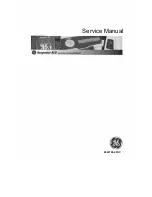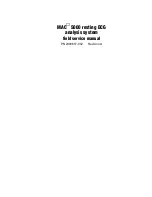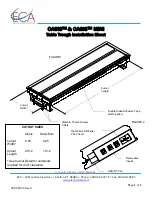
Getting Started
Material Conditions
In order for a material to be used for imprinting, the material must meet all of the following conditions.
Material
• Acrylic
• Polypropylene
• Polystyrene
• ABS
• Leather
• Polyurethane
• Vinyl chloride
Thickness
Maximum: 26 mm (1.02 in.)
* Height from the base table to the upper surface of the material loaded on the VISE KIT: 50 mm (1.96 in.) or less
Size
The material is large enough to be firmly secured.
You can use the center vise or the adhesive sheet to secure the material. It is acceptable for the material to be
of a size such that it protrudes from the center vise or adhesive sheet, but the essential requirement is that
the material can be firmly secured.
Shape
There must be no unevenness on the imprint surface.
Imprinting is not possible for material that comes into contact with the moving part of the machine when
being loaded or during imprinting.
The edge of the material is too high.
NOT OK
L-shape
NOT OK
Gentle undulations of less than 0.5 mm (0.0196 in.).
Correct imprinting is not possible if the height displacement cannot be tracked by the head.
Cross-sectional view:
Flat view:
3
Summary of Contents for VL-300
Page 16: ...R1 200608 FA02211...


































